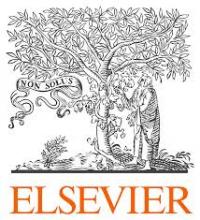Resource information
BACKGROUND: Palestinian refugees have lived in camps and gatherings in Lebanon for more than 60 years. They are socially, politically, and economically disadvantaged as a result of discriminatory laws and decades of marginalisation, as shown by the absence of property rights and being banned from more than 30 occupations. In Palestinian refugee camps and gatherings, the provision of housing, water, electricity, refuse, and other services are inadequate and contribute to poor health. The association between physical and mental health and living conditions of Palestinian refugees in Lebanon was assessed. METHODS: A cross-sectional survey of a representative sample of Palestinian refugees living in all the camps and gatherings in Lebanon was done with multistage cluster sampling during July and August, 2010. Within clusters, households were selected with a random-walk algorithm from a sampling frame provided by the UN Relief and Works Agency for Palestine Refugees in the Near East (UNRWA). Trained Palestinian social workers interviewed a proxy respondent (generally the female homemaker) from each household face to face using a structured questionnaire. Respondents answered questions about the health and sociodemographics of all household members, housing conditions, and household expenditures and assets (including the ownership of household appliances). The questionnaire included housing indicators for water leakage and type of construction materials. Health was assessed with household reports of chronic and acute illnesses, and mental health of the respondent was assessed with the five-item mental health inventory. Logistic regression models were used to analyse the association between chronic or mental health problems and housing conditions; other covariates were controlled for. This study was approved by the Institutional Review Board of the American University of Beirut. Informed oral consent was obtained from proxy respondents. FINDINGS: A total of 2575 households were randomly selected from a sampling frame and 2501 (97%) responded to the survey. An estimated 31% of 11 092 individuals surveyed had had chronic illnesses and 24% had had acute illnesses in the 6 months before the survey. 82% of 2501 proxy respondents were women; 52% of respondents reported chronic illness, 28% reported acute illness, and 55% were psychologically distressed. 42% of dwellings had water leaking from the roof or walls and 8% were composed of building materials that are dangerous to health (eg, asbestos). Multivariate analysis of predictors of chronic illness showed that the prevalence of chronic illnesses was significantly positively correlated with water leakage (odds ratio 1·24; 95% CI 1·04–1·48) and negatively correlated with household assets (0·85; 0·79–0·91), supporting the link between poverty and health in these communities. Respondents with poor mental health were more likely than were those with good mental health to live in crowded households (1·46; 1·27–1·67), reside in homes with water leakage (1·36; 1·14–1·62), report having chronic (1·98; 1·55–2·48) and acute illnesses (1·31; 1·02–1·68), and have fewer household assets (0·88; 0·84–0·94). INTERPRETATION: Palestinian refugees living in Lebanon struggle with poor health, which is exacerbated by substandard housing and other forms of social and economic marginalisation. Initiatives to improve their housing and economic conditions are needed. Additionally, the increased efforts to assess the social roots of poor physical and mental health and develop appropriate interventions are timely. FUNDING: European Union.



